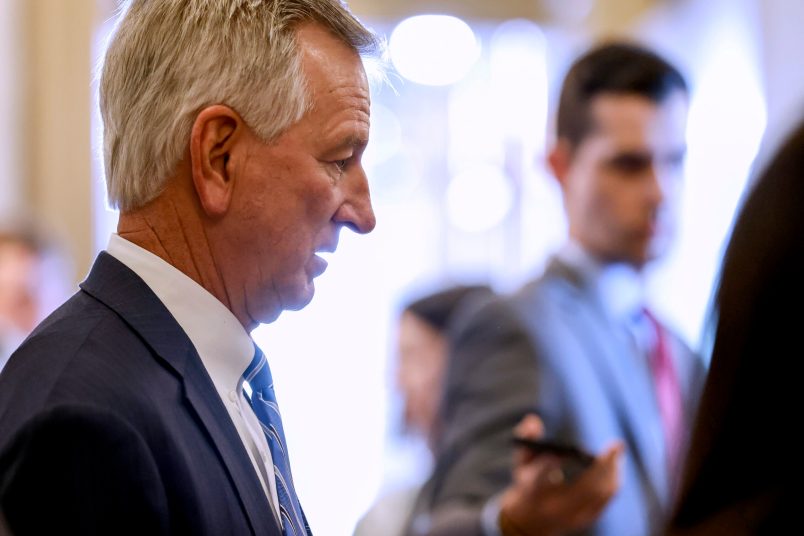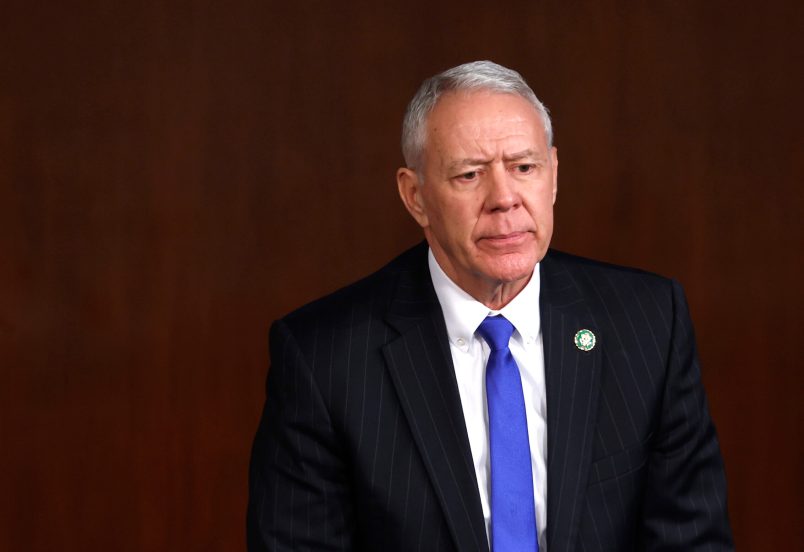Back in May, Virginia Gov. Glenn Youngkin (R) was one of a handful of Republican governors who bought into far-right conspiracy theories about the Electronic Registration Information Center (ERIC) and pulled his state out of the program.
Virginia had been a founding member of the program, which updates and maintains voter roll data for enrolled states, under former Republican Gov. Robert F. McDonnell. The program was created in 2012 as a bipartisan effort between election administrators in Colorado, Utah, Virginia, Washington, Delaware, Maryland and Nevada and was meant to help states not just maintain their own voter rolls, but also compare voter data between states to help identify issues like double voting.
As TPM has reported, ERIC became election denier’s new favorite boogeyman over the course of the past year or so, especially after Republican performance was less-than-stellar during the midterms.
Youngkin’s pull out from ERIC was part of a wave of Republican governors severing ties with the program after the far-right website Gateway Pundit published a series of blog posts that described the voter roll maintenance program as a hotbed for liberal activism, bankrolled by billionaire philanthropist George Soros.
This is, of course, not true.
This comes as the backdrop to news last week that Virginia election officials admitted they accidentally removed more than 3,000 eligible voters from the states voter rolls just before the Nov. 7 General Assembly elections. In recent weeks, local media had reported on a few hundred voters mistakenly being removed from the state’s voter roll. That alone raised alarms among Virginia Democrats. Per WaPo:
Gov. Glenn Youngkin’s elections team has admitted in the run-up to pivotal General Assembly elections that it removed nearly 3,400 qualified voters from the state’s rolls, far higher than the administration’s previous estimate of 270.
Elections officials under Youngkin (R) acknowledged what it called the mistaken removal of about 3,400 voters in a news release Friday — five weeks after early voting began for Nov. 7 General Assembly elections.
More from WaPo:
The news release claimed that local registrars had already reinstated all but “approximately 100” of the voters, all of whom had been convicted of felonies, had their voting rights restored and then went on to violate the terms of their probation. The state’s computer software had erroneously counted the probation violations as new felonies that disqualified them from voting, administration officials have said.
Administration officials were initially dismissive of the problem when public radio station VPM first identified it in September, but they announced in early October that about 270 voters had been mistakenly removed. Even that smaller number was enough to prompt Democratic Sens. Mark R. Warner and Tim Kaine of Virginia to seek a federal investigation. In a letter, they urged U.S. Attorney General Merrick Garland to probe whether the administration’s “purge” violated the Voting Right Act.
Now the 3,400 figure has heightened those concerns. Although that number represents a tiny fraction of the state’s nearly 6 million registered voters, control of the state House and Senate could come down to a handful of very tight races.
It’s not clear that there is a connection between the erroneous removal of qualified voters and the withdrawal from ERIC, but the error is a bad look, at best, during a crucial political moment for Youngkin, who is using the upcoming state General Assembly election as a litmus test for the viability of his bigger political ambitions. Not only is Youngkin believed to be mulling a potential late-in-the-game 2024 presidential bid, he’s also unofficially helping the Republican National Committee rebrand itself as the party that champions early-voting after years of demonizing the practice.
Additionally, it’s been speculated that the upcoming General Assembly elections will serve as a proxy for the acceptability of 15-week abortion bans among moderate Republican and Independent voters. Youngkin has vowed to pass a 15-week ban if Republicans win control of the state General Assembly.
Yesterday’s Most Read Story
Paralysis at the Top — Josh Marshall
What We Are Reading
DOJ seeks 10 years for Trump appointee who assaulted officers on Jan. 6 — NBC News
Outraised and embattled, Lauren Boebert heads back to Colorado with a revamped campaign strategy — AP





